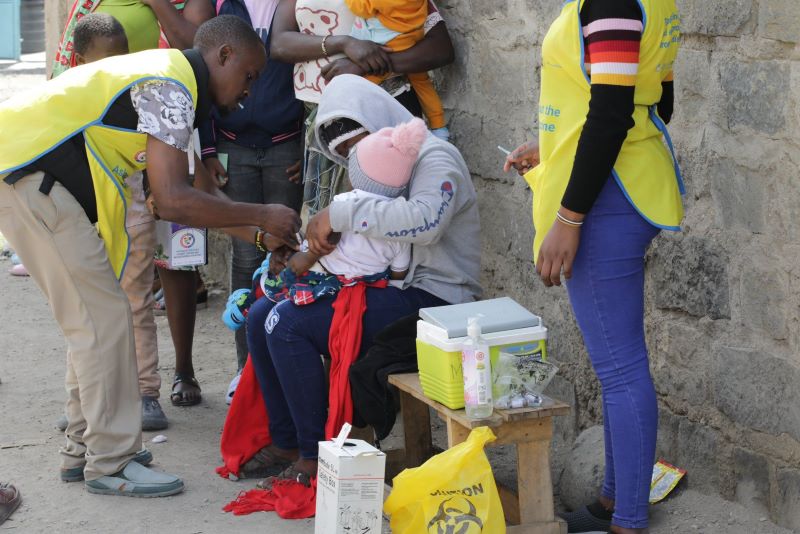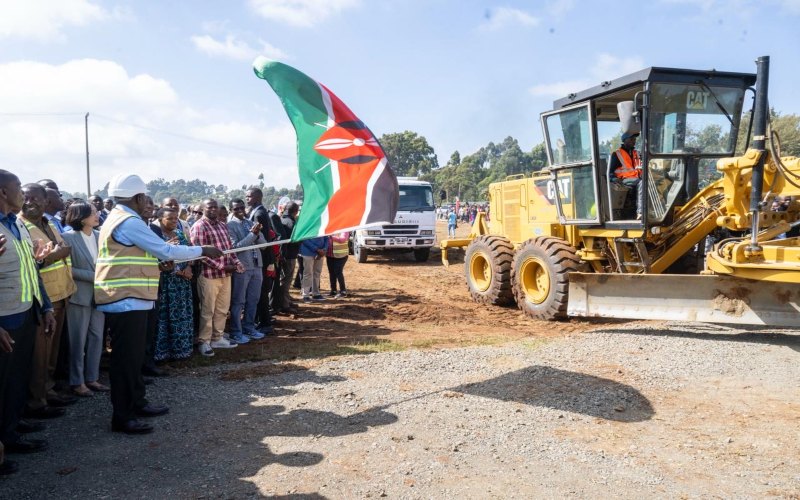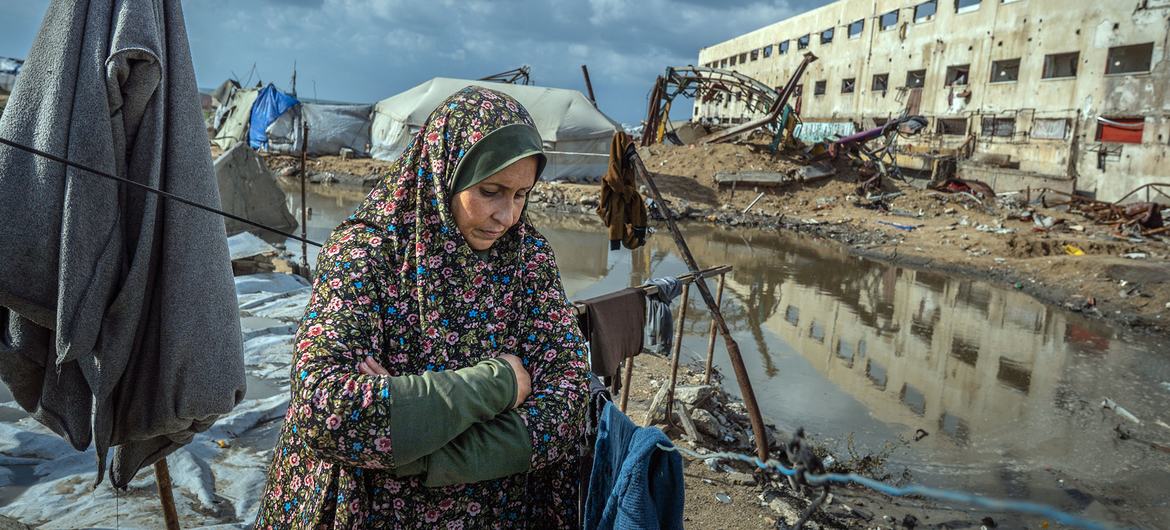Nubians want their land in Kibera protected from planned demolition
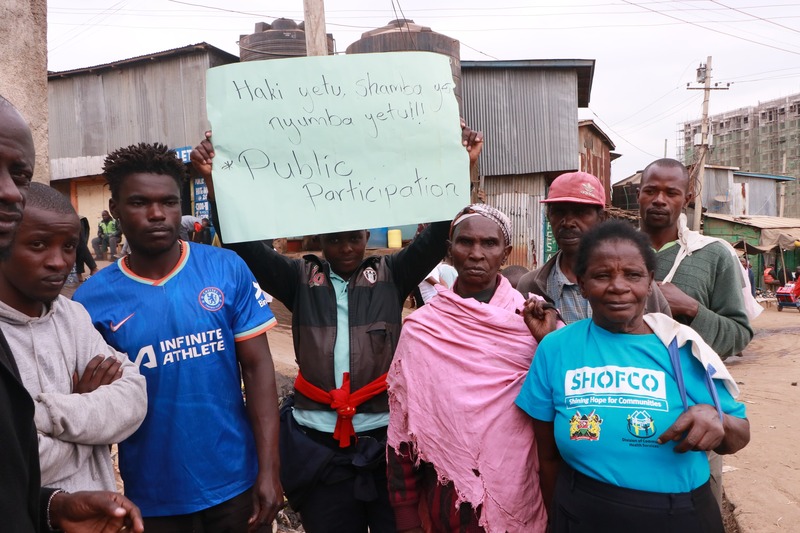
Former President Uhuru Kenyatta granted Nubians a communal land title deed for 288 acres in Kibera.
The Nubians Rights Forum has urged the state not to hive off part of the land allocated to the Nubian community in Kibera for the third phase of the slum upgrading programme.
The state, through the Housing Department, is planning to demolish informal structures in the Soweto area of the slum to pave the way for the third phase of the affordable housing programme.
More To Read
- Nubian Rights Forum launches sensitisation drive to end marginalisation of minority groups
- Nubians recognised as Kenyan ethnic group since 1978, says CS Murkomen
- Five Sudanese arrested as domestic worker dies in Kilimani apartment
- SHOFCO founder Kennedy Odede awarded 2025 Nelson Mandela Prize
- Schools in Mathare, Kibra, Mukuru slums set for recognition under proposed education law
- DNA delays add to grief for families of Kibra fire victims
The Nubians Rights Forum Executive Director Shaffie Ali Hussein told The Eastleigh Voice that the lobby does not oppose the project but will not support the hiving off of land belonging to the community.
“As long as the demolition is not in the Nubian 288 acres’ piece of land, we have no problem; but Article 40 of the constitution must be applicable,” Shaffie said.
He said that members of the Nubian community have not been invited for public participation by the state on the plans to demolish several houses to pave the way for the construction of the new housing units.
Concerns of the lobby come one month after residents of Soweto village in Kibera slum protested the decision by the government to demolish their houses to pave the way for the third phase of the affordable housing programme.
The residents, who included youths and elderly persons living in the informal settlements, said the government had not adequately addressed their concerns before the move.
Maxwell Kiare, a resident, said they would want the second phase of the project completed before initiating the third phase.
"When the president visited Kibera, he assured us that he will ensure that the second phase of this housing project is completed. We are shocked to see notices telling us to give space for clearing of structures before the construction works for the third phase begin," said Kiare.
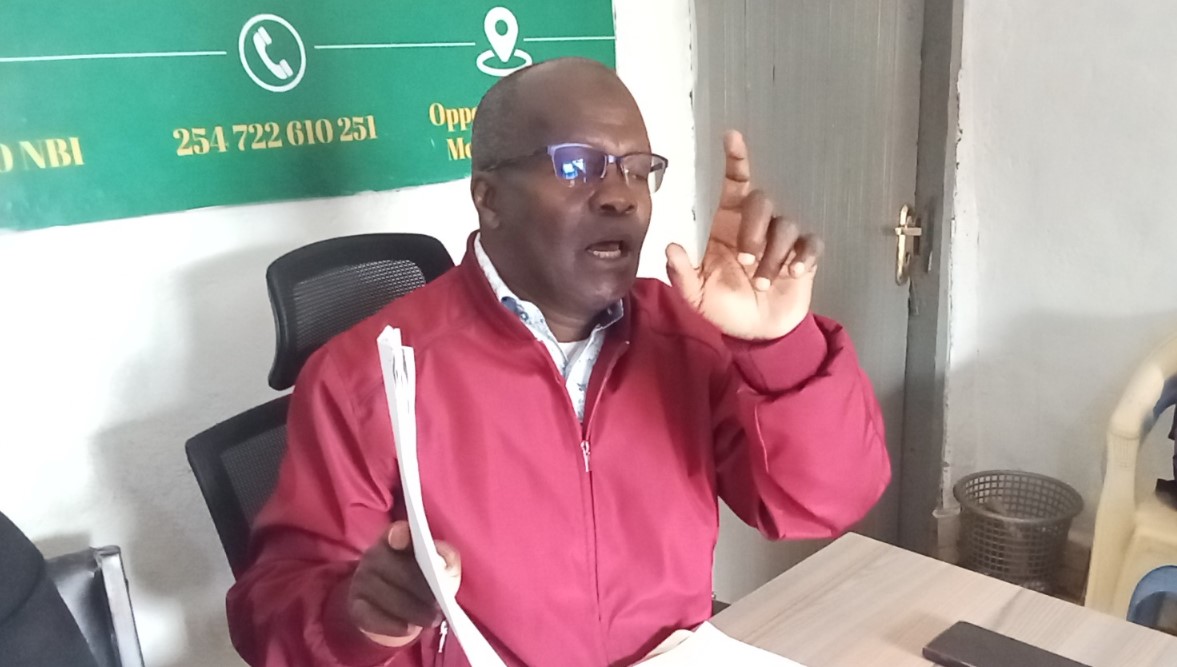 Nubians Rights Forum Executive Director Shaffie Ali Hussein during an interview with The Eastleigh Voice. (Photo: Barack Oduor)
Nubians Rights Forum Executive Director Shaffie Ali Hussein during an interview with The Eastleigh Voice. (Photo: Barack Oduor)
Fair compensation
Another issue of concern to the residents is the matter of compensation and acquisition of the newly built units. Kiarie said they would want fair compensation for giving out space for building the third phase of the houses.
Risper Makena, a 62-year-old widow, wondered why the government was in a rush to demolish their structures when no public participation with the residents had been conducted.
"Nobody has come here to tell us how we will be compensated if our houses get demolished. We are not even sure if we will ever be beneficiaries of the newly built units," said Makena.
The Nubians Rights Forum has been at the forefront of protecting the rights of residents of Kibera who are affected by decisions of the state being executed without public participation. In 2020, the lobby condemned demolition in parts of the Kibera slums to pave the way for the construction of a link road.
Some 29 families in Makina and Mashimoni villages have been rendered homeless after their houses were flattened since the demolitions started one week ago.
Kibera is the largest slum in Kenya, home to more than 250,000 people. Yet it has only one graveyard and only one group of people are buried here. While others are laid to rest in their ancestral lands up-country, the Nubians are the only ethnic group that considers Kibera their homeland.
A tiny community, Nubians were only officially recognised as a Kenyan ethnic group as recently as 2009, and for decades had been denied full citizenship rights.
Originally from Sudan, they were recruited by the British over a century ago to serve as colonial troops and were rewarded for their service with land in what was then a remote area, miles away from the centre of Nairobi. They called it Kibra, the Nubian word for “forest”.
Former President Uhuru Kenyatta granted Nubians a communal land title deed for 288 acres in Kibera, a watershed moment in a long fight for rights to their land.
Top Stories Today



